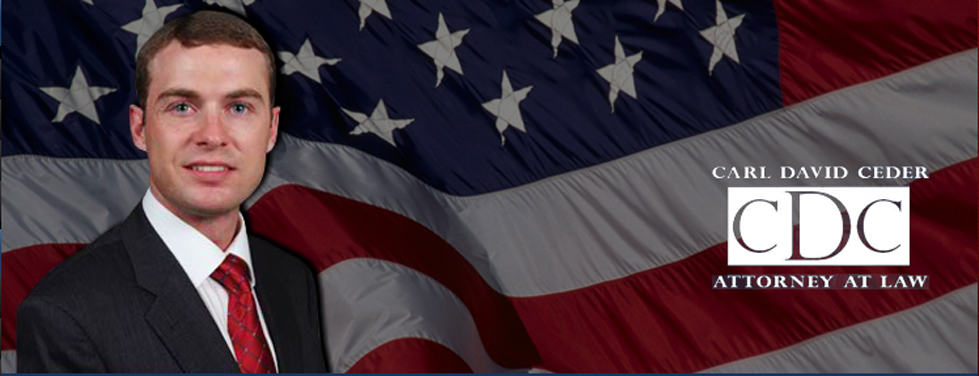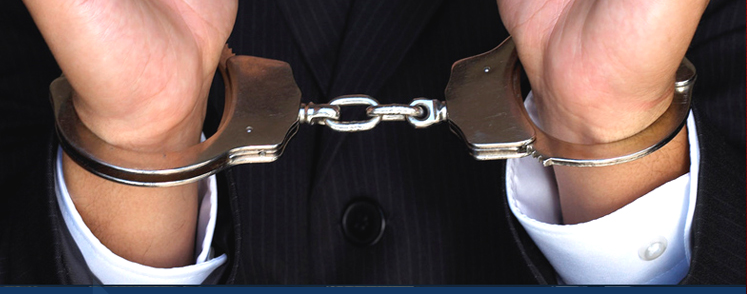Juvenile Detention Hearings
Many people have questions on the differences between when a juvenile is detained and when an adult is arrested. Often the facts of the case will be the same, if not identical – but the entire system is different in many respects. Often, people are more distressed whenever issues arise with their children, regardless of the circumstance. The same is true with when a juvenile – someone’s child – is accused of a criminal offense and detained. Our children are precious to us – and often pressure and the emotion that arises is often much more tense. One of the most daunting issues that can come to an attorney – who is not familiar with criminal defense, much less with juvenile law - is the need to get the child of a friend, family member, or neighbor out of a juvenile detention facility. Often attorneys can be faced with dealing with this, because parents often call whatever attorney they may know, regardless of their area of practice. The following is an outline that is written to help those unfamiliar with the process understand how a juvenile is detained, and under what guidelines they may be released. It should be noted that is entirely different than with the adult criminal process.
First, juveniles are detained, and not arrested. They are NOT taken to the adult jail, they are taken to the juvenile detention facility. Juveniles are not placed into county jails with adults. They cannot be placed there by law. Counties that have juvenile detention centers maintain them completely separate from adult jails. Moreover, a child must be at least 10 years of age to be taken into a juvenile detention facility. Regardless of the type of charge or the facts of the case, more often than not a parent just wants to know what needs to be done to get their child out! Unlike with adults, who unless it is an extraordinary situation will see a Judge and likely will get a reasonable bond amount whereby they can post it to obtain a jail release, a Juvenile does not have such luxury. However, the bright side to this process is a juvenile that has been detained is entitled to a hearing on the issue of their detention within 72 hours. However, because of this very short time window, it often allows for little time to prepare. Thus, a child detained on a Wednesday will likely have a detention hearing on the same week on Thursday or Friday. Which also means that a juvenile detained on a Friday will likely have a detention hearing on the following Monday. Again, this can leave very little time for preparation before the first hearing.
In theory, the main purpose of a juvenile detention hearing is to determine if there was “probable cause” to believe a juvenile offense has been committed, and is it likely the juvenile being detained is responsible? The standard for “Probable Cause” is very low – as must attorneys know. This leads to the proposition that the burden of proof the State must satisfy at a juvenile detention hearing is very low. Moreover, the standard Rules of Evidence do not apply at juvenile detention hearings. This effectively means that hearsay statements come in, and traditional rules that govern trials and other types of hearings do not apply.
The main crux of what is to be determined at the juvenile detention hearing is codified in the Texas Family Code, Section 54.01(e). The state has to prove that just one of five factors exist. Texas Family Code §54.01(e), states in relevant part:
At the conclusion of the hearing, the court shall order the child released from detention unless it finds that:
1. He is likely to abscond or be removed from the jurisdiction of the court;
2. Suitable supervision, care, or protection for him is not being provided by a parent, guardian, custodian, or other person;
3. He has no parent, guardian, custodian, or other person able to return him to the court when required;
4. He may be dangerous to himself or may threaten the safety of the public if released; or
5. He has previously been found to be a delinquent child or has previously been convicted of a penal offense punishable by a term in jail or prison and is likely to commit an offense if released.
These are the main factors that the Magistrate, or the “Referee” of the hearing, considers when deciding to detain the juvenile or order their release. In light of how the first threshold the Referee needs to determine is whether “Probable Cause” exists, a strategy to possibly employ is attacking the basis on which it relies. A juvenile cannot be detained without a finding of the court that there is probable cause they have committed an offense, and it is likely that the juvenile hearing is responsible. However, because the traditional Rules of Evidence do not apply, attacking the basis for probable cause developed by police officers, investigators, detectives, and juvenile detention officers cause this avenue to have difficulty pursuing.
A better method, and an approach that I have found to yield better results, is to challenge the findings that the court is required to make under the Family Code (the five factors listed above). I have found that bringing in an immense amount of support from parents, and others who may be in charge of overseeing the juvenile, can be the most persuasive with the Court when they make the determination of continued detention. In that you likely do not want to have the juvenile testify at such a hearing that is in such a preliminary phase, and thus risk the possibility of them incriminating themselves, it is perhaps a better policy to have one, or both, of the parents testify. Testimony that the parents take the allegation and charge incredibly seriously, and will oversee the conduct and behavior of the child if released can be compelling to hear. It is integral establish that the parents are aware of the alleged misbehavior, do not find the alleged behavior acceptable if true, and regardless – that they can, and will directly provide for needs and well-being of the child.
The provision of supervision is central to the case of a juvenile detention release. I find the more layers of a supervision plan a parent can outline and provide for the Court, the increased likelihood and chances there usually is for release. The Judge usually wants to be incredibly assured that if released, the child will be constantly in the line-of-sight of a responsible supervising adult. The more concrete of a case you can make for this, the Court generally will have a higher likelihood of finding that the juvenile will likely be unable to get into more mischief. This approach can have a greater likelihood of a possible release, in that the findings required by the Court to continue detention are cast in terms of the likelihood of absconding and the possibility of danger. A child provided with 24/7 around the clock, constant supervision by a responsible adult is not likely to be involved in any more trouble. It is crucial, therefore, if one is seeking to obtain a juvenile detention release that the child’s parents clearly detail and outline with the utmost clarity the type and nature of supervision that will be provided. I have had the most success with bringing in as many people as possible to the juvenile detention hearing. When in doubt, I generally recommend, have a person come in. The more faces the Court sees in support of the child, often they see as a sign of the juvenile and family taking the charges seriously. It stands to reason then that if this is the case, the family and support system will, therefore, do everything possible to ensure the child does not get into any trouble through constant and consistent supervision. Family members, neighbors, and friends can often fill in any gaps between when the child is released from school and when the parents return home from work. If it is the summer or during holiday vacations while the juvenile is not in school, and if the parents work, it is absolutely critical to bring in all individuals that could possibly help with the supervision of the child. If individuals cannot appear who will be able to provide supervision for the child, it is key for parents to testify to how they will arrange to have children brought to their workplace after school hours. Some arrangements and accommodation must be made for supervision for the Court to be satisfied with this factor. In my experience, if one can accomplish this, the juvenile has a very strong possibility of obtaining a detention release.
Aside from the above, it is very important for parents to not act in defiance that their child cannot possibly have been involved in whatever conduct is alleged, and as a result, act and testify in a manner that resembles total disbelief and denial that their child could be guilty of any wrongdoing. Often parents want to conduct a jury trial on the merits at the juvenile detention hearing. Parents must realize this is not the proper forum for this. Parents must keep the ultimate goal in mind – that a juvenile detention hearing is just that – it is to decide if continued detention is worthy of merit, or should the child be released while the case itself plays out. You do not have to establish innocence at the juvenile detention hearing to achieve success. In fact, a detention hearing, with its very low probable cause standard, is a very poor place to vindicate a falsely accused juvenile. It should also be noted that the more serious the alleged offense, the more likely it is that continued detention is ordered. If this is the case, then you do not want to have a full jury trial on the merits of the accusation at this time. The more serious of allegations usually result in a longer period of initial of detention. However, the child will be entitled to another hearing on the issue of his or her continued detention in 10 working days if continued detention is ordered by the Judge. If this is the case, this will allow for additional time to prepare and outline according to what is detailed above, which can further enhance the probability of a juvenile detention release.







































